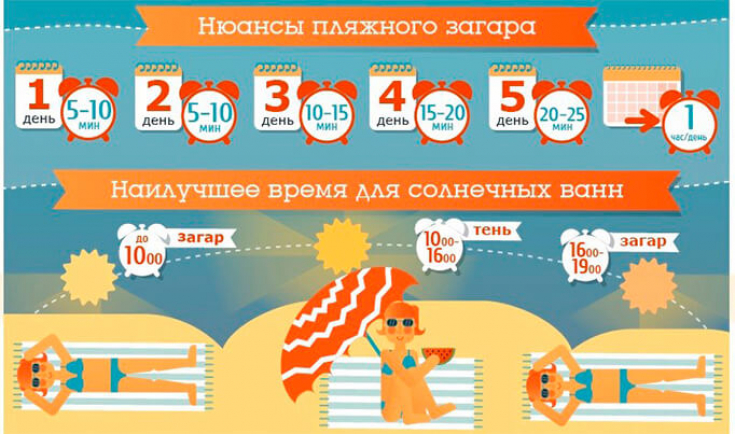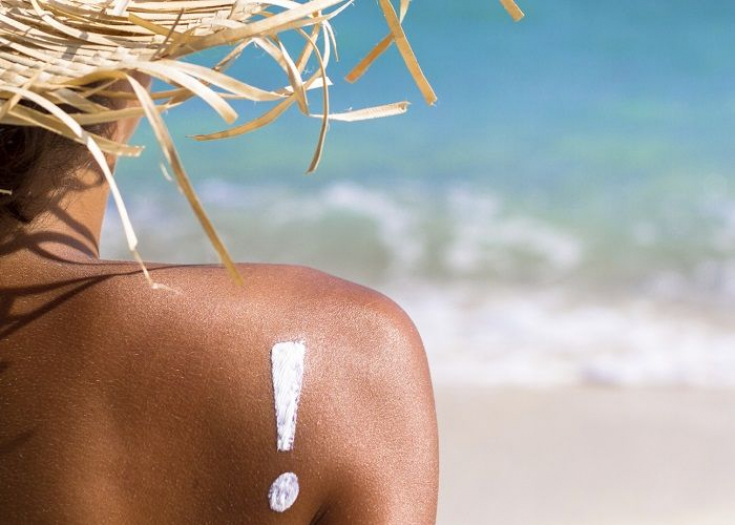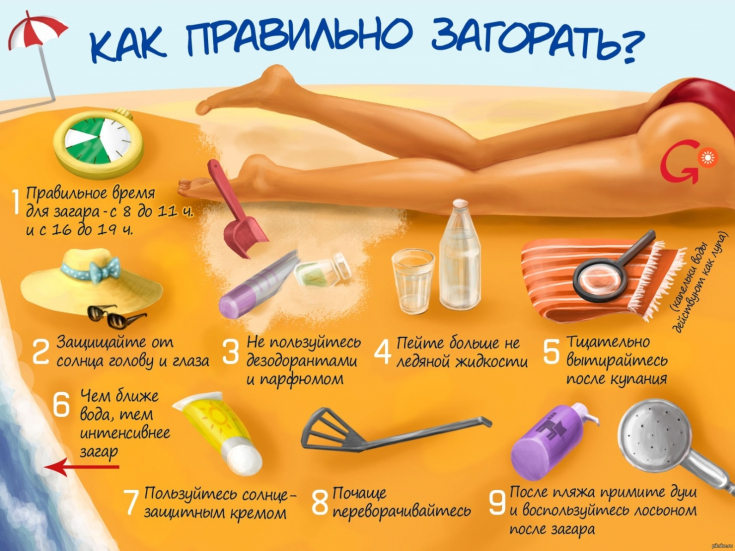With the onset of hot summer days, everyone is in a hurry to get their dose of warm sun – tan. Some people want to get plenty of sun to ensure an intense tan. Others, on the contrary, try to avoid and hide from him. Where is the right balance between getting burned and getting tanned? In order for the sun to be only a joy for you this summer, you need to competently approach the process of tanning, choose in advance the means of protection against UV rays that suits you.
Estet-portal.com will tell you how to properly prepare your skin for the scorching sun and not ruin your vacation, how to get a tan without "burning out" while.
How to choose a tanning product, what is SPF
If you are in the open sun on a summer day, then you definitely need UV protection so that your skin does not burn. Everyone needs it, albeit to varying degrees. And the choice in this case – cosmetics with sun protection function.
Subscribe to our page on Instagram!
When choosing a sunscreen, many are confused about which one to buy, what letters and numbers on the package mean how to find the right consistency. SPF – The main factor to pay attention to when choosing sun protection. This term indicates how much solar radiation you will receive without damaging your skin with burns. For example, SPF 30 means that by applying a cream with this marking on the body, you can withstand 30 times more UV radiation, than without it. If you have fairly fair skin, then use an SPF 50 cream, when the tan begins to appear on the body, you can consistently reduce the marks to 20.
Read also: Sunburn: the effect of the sun on the body
But don't think that if you are already tanned, then you don't need a cream with SPF, UV rays have an effect on tanned skin. Do not neglect sunscreen so that your skin does not burn. And for children also – for them, there are separate lines of creams with an SPF filter.
Safe tanning rules to avoid burning your skin
Despite the constant warnings on television, in the press, many do not know how to behave in the sun so as not to harm the skin and their health, because skin cancer – one of the most common diseases.
• if you are taking medications, it is better to consult a doctor before tanning, because. some medications may increase sensitivity to UV rays;
• half an hour before going out, be sure to use sunscreen;
• don't think self-tanning in a tanning bed can protect you from UV radiation;
• renew protection every 3 hours, apply all over body;
• do not sunbathe on the beach from 12-16 hours, at this time the harmful activity of the sun is at its peak, the risk of heat stroke increases, and it is best to go under a canopy or wait out this time indoors;
• sand and water perfectly reflect UV rays, so even if there are no clouds and sun in the sky, there is still a chance of getting burned;
• Shoulders, back, nose and ears burn the fastest, so use a high SPF cream in these areas;
• dress properly – most of all, the sun's rays are attracted to black, and repelled from white;
• drink plenty of water, juices on the beach, and save alcohol for the evening, as it dries out the skin. xxxx>
How to prepare your skin for tanning so you don't burn yourself
Before heading to the beach, you need to learn how to properly prepare your skin for sunbathing:
 • two weeks before a trip to the sea, try to moisturize the skin as much as possible: with special oils, milk, cream;
• two weeks before a trip to the sea, try to moisturize the skin as much as possible: with special oils, milk, cream;
• in the first sunbathing days under the sun, it is better not to use a washcloth in the shower – so you can erase the tan;
• drink the daily amount of water to determine it for yourself, multiply 30 by your weight, and get the amount of water you need in milliliters;
be sure to protect your skin
so that you don’t regret anything later!
Watch us on YouTube:







Add a comment